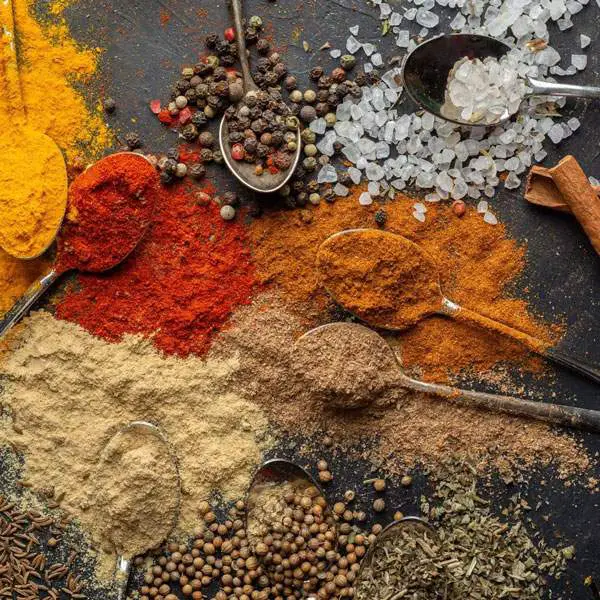The Spice Spectrum: Discovering the True Taste of Whole Spices
Spices: The mischievous pranksters that make your taste buds do the spicy salsa. It’s a love-hate relationship, but oh, how we keep coming back for more!
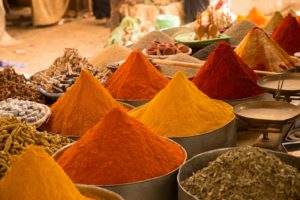
Spices have long been misunderstood. There is a commonly held belief that they are generally SPICY!!! This belief is significantly more prevalent when it comes to South Asian cuisine, which includes Bengali cuisine. Yet Bengali cuisine, which is known for its rich and diverse flavors, also holds the ideal backdrop for dispelling the stereotype that spices are always spicy.
Whenever we think of Bengali food, we think of the vast use of spices in the cuisine and expect it to be hot and spicy. However, this couldn’t be further from the truth. Spices are utilized in Bengali cuisine not just for their heat, but also for their fragrance, balancing powers, and even medicinal properties. For us Bengalis/Bangalees, spices represent much more than simply burning feelings.
In this blog article, we will look at the vast world of spices and debunk some of the myths about their spiciness. showcasing their different qualities and shining emphasis on their lesser-known attributes. So, let’s look at some instances from the Bengali cuisine context:
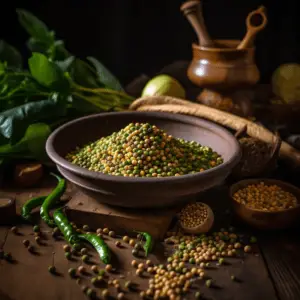 The Spectrum of Spice:
The Spectrum of Spice:
While some spices like chili powder and black pepper do add heat to dishes, many others bring complex and delicate flavors without even a trace of the burning sensation. The spectrum of flavors that spices bring to the table range from mild and aromatic to bold and fiery. Cardamom, for example, is often used in preparing tea in Bengali cuisine for its fragrance that adds to the wonderful smell of the tea leaves.
Adding a sizzle and a pop to your recipes, like a flavor symphony dancing on your taste buds.
Aromatic Delights:
Spices have long been prized for their aromatic qualities. Cumin, coriander, turmeric add depth and complexity to dishes with their earthy and fragrant profiles. These flavors play a crucial role in enhancing the overall taste and aroma of the dishes. For example, in dishes like Shorshe Ilish (Hilsa fish in mustard sauce), a blend of mustard seeds, turmeric, and green chilies is used to create a pungent and aromatic sauce.
Balancing Act:
Spices play a crucial role in delicately orchestrating the symphony of flavors. When ginger, cloves, and allspice join the ensemble, their subtle spiciness weaves a magical spell. Yet, their true essence lies in their ability to unite diverse ingredients, crafting an exquisite tapestry of taste. They effortlessly elevate the natural essence of meats, vegetables, and grains, ensuring that no element overpowers the others. Picture this: In delightful culinary creations like the Bengali Chicken Roast, the combination of ginger, garlic, and an array of spices orchestrates a symphony that balances the tangy flavor of yogurt and the creamy richness of milk, all while enhancing the tantalizing savor of the chicken. Leaving an edible masterpiece that creates a lasting impression on the palate.
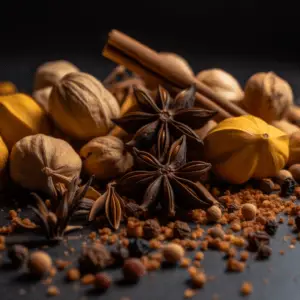
The Sweet Side of Spices:
Many spices can be found in sweets and beverages. The warmth of spices such as vanilla, saffron, and star anise, cinnamon may elevate a basic dish to gourmet heights. These spices provide levels of taste that go beyond sweetness, bringing richness and finesse. Bengali delicacies are not immune to the spice world. Payesh (Rice Pudding), for example, mixes the warm and nuanced tastes of cinnamon (darchini) and cardamom (elachi), boosting the sweetness of sugar and adding a layer of aroma.
Medicinal and Therapeutic Properties:
In addition to their culinary applications, spices have long been utilized for their medical and therapeutic effects. Ginger is well-known for its digestive-soothing effects, whilst turmeric is revered for its anti-inflammatory benefits. Spices such as cinnamon and cloves have also been linked to a variety of health advantages, making them essential compliments to a well-rounded diet. Bengali food also makes use of spices for their health advantages. Turmeric (halud), recognized for its anti-inflammatory effects, is almost like a mainstay in every curry dish cooked in Bengali cuisine, adding a brilliant color and imparting therapeutic powers. The same can be said about ginger and garlic; very few recipes in Bengali cuisine do not use these two components.
Spice vs. Heat: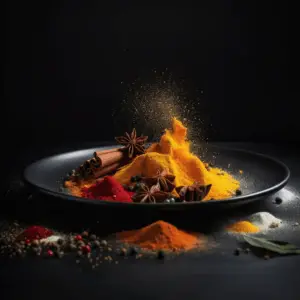
Spices are frequently associated with heat because some, like chili peppers, may lend scorching feelings to foods. It is, nevertheless, critical to distinguish between spices and spicy tastes. Many spices, like cinnamon, nutmeg, and cloves, are noted for their warming and soothing overtones rather than their spiciness. They provide depth, richness, and complexity to a variety of culinary preparations. Spices like cinnamon and cardamom, for example, are commonly used in sweets like Gajaorer Halwa (a carrot treat). This spice not only makes the food smell appealing, but it also gives a tone of comfort to it while also balancing the sweetness.
Spices are about more than just heat; they also have a wide range of tastes, fragrances, and health benefits. While certain spices provide heat, many others have complex flavors, aromatic properties, and even health advantages. Having a broad appreciation for spices helps us to explore and experiment with a wide range of culinary options. So, discard the notion that all spices are spicy and begin on a journey to explore the rich tapestry of tastes that spices have to offer. We may understand how spices contribute to a wide range of tastes, smells, and health advantages by investigating Bengali food. Bengali food exhibits the idea that spices are more than just a source of heat, but also a sophisticated and diverse pallet of flavors that complement culinary creations.
|

